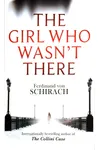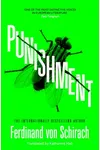Picture a German storyteller who trades the courtroom for the bestseller list, weaving tales that unravel the human psyche—meet Ferdinand von Schirach! Born in 1964, this criminal lawyer-turned-author has captivated millions with his gripping crime fiction and moral dilemmas, drawing from real-life cases to explore justice, guilt, and humanity. His unique lens, shaped by a complex family history, makes him a standout voice in contemporary literature.
With books translated into over 35 languages and adaptations lighting up screens worldwide, von Schirach’s stories aren’t just page-turners—they’re thought-provokers. Ready to dive into his world of legal intrigue and ethical questions? Let’s explore the man behind the pen.
The Making of Ferdinand von Schirach
Ferdinand von Schirach was born in Munich, Germany, into a family with a storied and controversial past. His grandfather, Baldur von Schirach, was a prominent Nazi youth leader, a legacy that casts a long shadow. Raised in Munich and Trossingen, Ferdinand attended the Jesuit college Kolleg St. Blasien, later reflecting on its darker aspects in essays for Der Spiegel. He studied law at Ludwig Maximilian University, becoming a criminal defense attorney in Berlin by 1994. His legal career, marked by high-profile cases like the Liechtenstein Tax Affair, gave him a front-row seat to human conflict—fuel for his literary journey.
Writing wasn’t a whim; it was a lifelong dream. As a child, von Schirach penned poetry and plays, but fear of poverty pushed him toward law. At 45, he finally embraced his passion, publishing his first short stories and skyrocketing to fame. His dual expertise as a lawyer and storyteller sets him apart, blending courtroom precision with narrative flair.
Ferdinand von Schirach’s Unforgettable Stories
Von Schirach’s debut, Verbrechen (Crime, 2009), is a collection of eleven short stories drawn from his legal cases. With a crisp, no-nonsense style, it dissects the lives of perpetrators and victims, posing ethical questions that linger. Stories like “Fähner,” about a doctor’s shocking crime, reveal the fragility of truth. The book’s success—54 weeks on Der Spiegel’s bestseller list—spawned a hit TV series.
Schuld (Guilt, 2010) continues the trilogy, probing the boundaries of culpability with tales inspired by real courtroom dramas. Der Fall Collini (The Collini Case, 2011), a novel, tackles post-WWII justice, featuring a character inspired by his grandfather. It’s a gripping “whydunit” that climbed to number two on bestseller lists. Strafe (Punishment, 2018) rounds out the trilogy, with stories like “The Outing” exploring justice’s harsh realities. His play Terror (2015), staged globally, challenges audiences to judge a moral dilemma—an airliner hijacking—with no easy answers.
His style is lean yet profound, avoiding judgment to let readers wrestle with moral ambiguity. Themes of guilt, punishment, and human vulnerability shine through, making his work both thrilling and introspective, perfect for fans of Kafka or le Carré.
Why Ferdinand von Schirach Matters
Von Schirach’s impact transcends bookshelves. His ability to distill complex legal and ethical issues into accessible stories has demystified the law for millions. Awards like the 2010 Kleist Prize honor his literary skill, while global adaptations amplify his reach. As a public intellectual, he sparks discussions on justice and historical accountability, urging readers to confront uncomfortable truths.
His family’s Nazi ties add depth to his work, particularly in The Collini Case, which critiques Germany’s post-war leniency toward former Nazis. By blending personal and universal themes, von Schirach invites us to question justice systems and human nature, cementing his place as a literary force.
About Ferdinand von Schirach
- Born: May 12, 1964, in Munich, Germany
- Key Works: Verbrechen, Schuld, Der Fall Collini, Strafe, Terror
- Awards: 2010 Kleist Prize
- Fun Fact: His play Terror has been performed in over ten countries, from Japan to the USA.
Snag Verbrechen or The Collini Case and dive into Ferdinand von Schirach’s thrilling world of crime and conscience!




